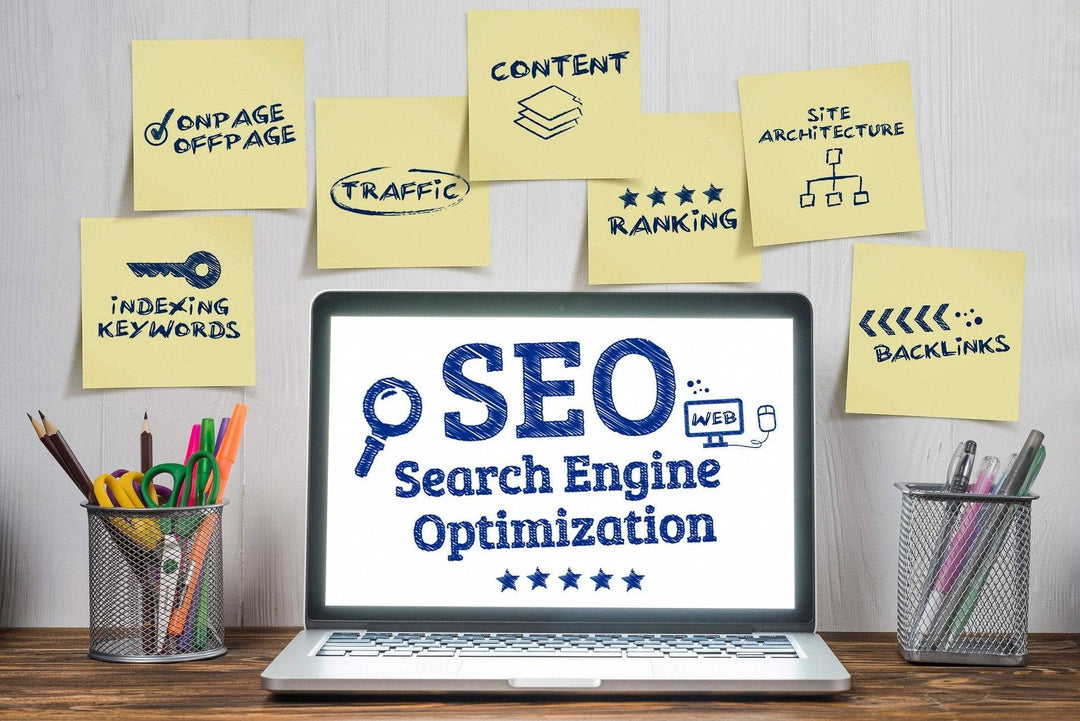Frequently Asked Questions
1. Why is Shopify marketing important for eCommerce businesses?
2. What should I include in my digital marketing plan for Shopify?
3. What are some common mistakes to avoid in SEO for my Shopify store?
4. How can I effectively use social media for my Shopify store?
5. What is the importance of customer feedback in marketing?
As a Shopify store owner, navigating the world of online marketing can be daunting. With numerous strategies and techniques available, it's important to know what works and what doesn't. Implementing the right practices can dramatically boost your store's visibility and sales. In this blog post, we’ll explore the do's and don'ts of Shopify marketing, helping you create a successful digital marketing plan tailored specifically for your eCommerce business.
The Importance of Shopify Marketing
Before diving into the specifics, it’s essential to understand why Shopify marketing is critical to your success. E-commerce platforms like Shopify provide the tools needed to reach a global audience. However, without a solid marketing strategy, your beautifully designed online store could gather dust. A strong marketing approach elevates your brand, drives traffic, and ultimately increases sales.
Do Establish a Clear Digital Marketing Plan
Every successful Shopify store starts with a solid digital marketing plan. This plan should outline your goals, target audience, marketing channels, and budget. Without a clear direction, you may find yourself overwhelmed and struggling to achieve meaningful results.
Define Your Goals
Goals could range from increasing website traffic to boosting products' conversion rates. By setting measurable goals, such as “I want to increase my store's traffic by 30% within six months”, you create a roadmap for your marketing efforts.
Identify Your Target Audience
Understanding who your potential customers are is crucial. Conduct market research to identify their demographics, preferences, and purchasing behaviors. This knowledge helps you tailor your marketing messages and product offerings effectively.
Select Your Marketing Channels
In your digital marketing plan, choose the channels best suited for reaching your target audience. Common channels for Shopify marketing include:
- Social Media (e.g., Facebook, Instagram, Pinterest)
- Email Marketing
- Content Marketing (blogs, articles, videos)
- SEO and SEM (Search Engine Optimization and Search Engine Marketing)
Don't Ignore SEO Best Practices
Search Engine Optimization (SEO) is integral to driving organic traffic to your Shopify store. Focusing on SEO best practices is crucial, so here are some common mistakes to avoid:
Keyword Stuffing
While it's essential to use keywords like "Shopify" and "digital marketing plan", overloading your content with keywords can hurt your SEO. Use keywords naturally in your content, titles, and meta descriptions.
Neglecting Meta Tags
Every page on your Shopify store should have relevant meta titles and descriptions that contain your target keywords. These tags not only help search engines understand your content but also encourage users to click through to your site.
Ignoring Mobile Optimization
With an increasing number of shoppers using mobile devices, it's critical to have a responsive design. Ensure your Shopify store provides a seamless experience on mobile devices to improve conversion rates.
Do Utilize Social Media Effectively
Social media platforms provide a fantastic opportunity to engage your audience while showcasing your products. Implement these strategies to harness social media's potential:
Create Engaging Content
Engagement is key on social media. Post high-quality images, videos, and interactive content to draw in your audience. Use polls, contests, and giveaways to encourage participation.
Leverage Influencer Marketing
Collaborating with influencers can enhance your store's visibility. Choose influencers whose audience aligns with your brand. Their endorsements can significantly increase your credibility and drive traffic to your store.
Schedule Regular Posts
Consistency is crucial for maintaining interest and engagement. Use social media management tools to schedule your posts and keep your online presence active.

Don't Rely Solely on Paid Advertising
While paid advertising can be an effective way to generate quick sales, relying exclusively on it can be detrimental in the long run. It's vital to combine different marketing strategies for a holistic approach.
Build an Organic Following
Focus on building an organic following through quality content and engagement. This can lead to a more loyal customer base and reduce your dependency on ongoing ad spend.
Analyze Your Ad Performance
If you're using paid advertisements, frequently analyze and adjust your campaigns. Pay attention to which ads perform well and which don’t. Use this information to optimize your future campaigns for better results.
Do Implement Email Marketing Campaigns
Email marketing remains one of the most effective ways to reach customers. A well-thought-out email campaign can keep your audience engaged and encourage repeat purchases.
Segmentation is Key
Divide your email list into segments based on customer behavior, preferences, or demographic data. This allows you to send tailored messages that are more likely to resonate with each segment.
Create Compelling Newsletters
Your newsletters should offer value. Include helpful content, exclusive discounts, or personalized product recommendations. Engaging newsletters keep your customers coming back for more.
Don't Overlook Customer Feedback
Your customers are valuable sources of information. Ignoring their feedback can hinder growth and improvement:
Encourage Reviews
After a purchase, send follow-up emails asking for reviews. Customer testimonials can serve as powerful marketing tools for new shoppers.
Act on Feedback
Take the time to analyze feedback from customers. If trends arise indicating the need for change, implement those adjustments to improve customer satisfaction and loyalty.
Do Invest in Content Marketing
Content marketing is an inexpensive yet impactful approach to establishing your brand. By creating valuable resources, you can help potential customers while promoting your Shopify store. Here are some effective content marketing strategies:
Start a Blog
Writing regular blog posts can educate your audience on topics relevant to your products. Incorporate SEO keywords like "Shopify" and "digital marketing plan" naturally into your articles to drive organic traffic.
Utilize Video Content
Videos are popular and engaging content forms. Create product demos, tutorials, or behind-the-scenes looks at your business. Video content can enhance your brand's authenticity and connect with customers on a personal level.
The Roadmap to Successful Marketing on Shopify
Marketing your Shopify store may seem overwhelming, but by following the do's and don'ts we discussed, you can create a successful digital marketing plan. Focus on understanding your audience, utilizing all channels effectively, and continuously optimizing your strategies based on performance data.
Success in eCommerce doesn't happen overnight but requires a strategic approach and dedication. Fortune favors the prepared, so ensure you equip yourself with the tools and knowledge to thrive in the competitive online marketplace.
As you implement these marketing strategies, remember that your ultimate goal is not just to drive sales but to build lasting relationships with your customers. A loyal clientele will not only come back for repeated purchases but will also advocate for your brand, bringing in new customers through word of mouth. Start today, follow these guidelines, and watch your Shopify store flourish!
Discover the creativity of other Shopify or Wix store owners by visiting their stores. Follow this link to their online store. Please remember that this is a promotional link, and we assume no liability for the content of the linked store.






Leave a comment